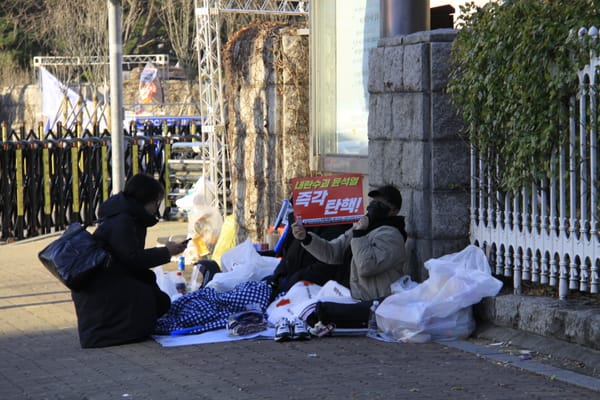Asia Undercovered Special: Press and Digital Freedom in Asia
The state of press and digital freedom in Asia, including the challenging facing journalists, activist, and dissidents, the links to democratic backsliding, and what some are doing to stem this tide.
Earlier this year, Asia Undercovered's favorite source for news about Cambodia, the independent outlet VOD was shut down after the government revoked its license. Beyond being a huge loss for us and our goal to feature the best local reporting in Asia, it shows just how perilous press and digital freedom is in the region.
The latest report from the non-profit Civicus shows is clearly – only one country in the region is considered “open.”
Factor in the growing ability of the state to censor content online and spread disinformation, and you have a recipe for a less informed public, and less in-depth reporting on the public interest. What stories are no longer being reported and shared because outlets like VOD have been shut down?
So in this Asia Undercovered Special Issue, we'll look at the state of press and digital freedom in Asia, including the challenging facing journalists, activist, and dissidents, the links to democratic backsliding, and what some are doing to stem this tide.
Asia Undercovered Special Issues focus on a single theme, with the goal of giving readers deeper insight into that topic.
The rise of digital authoritarianism
All across Asia, governments are passing laws and both inhibit the ability of citizens and journalists to share information, while also expanding their power to censor and control content.
Quite often, this is done via so-called "fake news" bills, like one that was passed in Kyrgyzstan last year, which activists fear will limit free speech and suppress criticism of those in power (Bermet Talant, EurasiaNet).
Many of these governments wish they had the power that China's ruling Communist Party has, to exert almost total control over social media. The system is so opaque, writes Oiwan Lam for Global Voices, that many don't even know why they can't post content on Chinese social media platforms like Weibo and WeChat.
Vietnam, is, like China, also authoritarian, and according to this analysis by Dien Nguyen An Luong, the focus of censorship has been on what they call "anti-state" content and keeping an image of "superficial openness while maintaining their grip on online discourse," (IIAS).
Democratic Backsliding
As the Civicus map shows, few countries in Asia enjoy civic freedom. One of the reasons is that, even in the region's democracies, there has been increasing censorship and state control.
Thailand's internet was rated as 73% restricted, as bad as Qatar and Syria, due to increased censorship and blocks of certain websites. It remains to be seen if the new government will reverse the laws put in place by the junta (Bangkok Post).
In Pakistan, long seen as a fragile democracy, Ghulam Shabir Arain writes about it is often journalists, trying to report on issues like corruption or political repression, who are facing death threats, assaults, and intimidation (IJNet).
Meanwhile, Singapore's government suspended the license of an independent online media platform, The Online Citizen, which covered controversial issues such a migrant workers' right. Many saw it as "harassment and intimidation of the free press," (Mong Palatino, Global Voices).
And in South Korea, the government introduced an amendment to a media law that would raise punishments for media outlets that publish "fake news," but the excessive damages could, some fear, increase self-censorship and undermine freedom of the press (IPI).
Stemming the tide
Sri Lanka has been in the headlines for all the wrong reasons over the past year, due to an economic collapse. But amidst that, a group of fact-checkers, Watchdog has been using open source research to investigate the crisis and create the means for holding those at fault accountable (Nilesh Christopher, Rest of World).
Asia Undercovered: Round-ups and in-depth analysis of the news, events, trends and people changing Asia, but not getting enough attention in the US media



